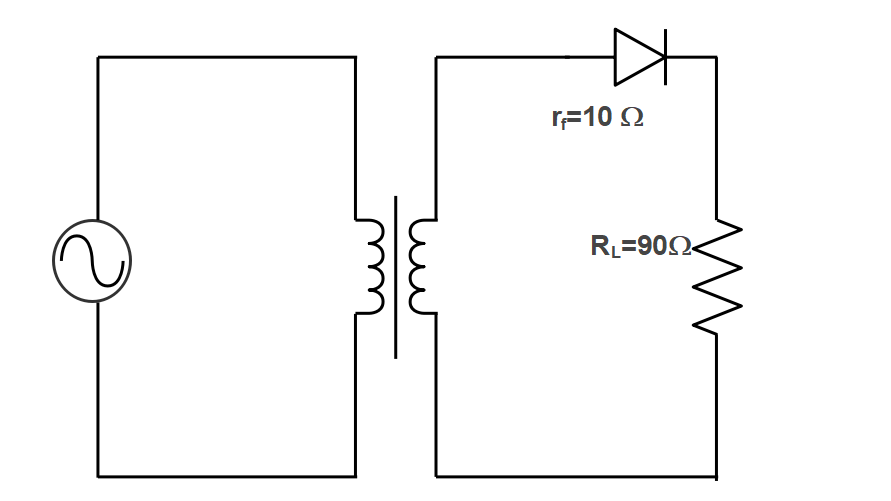Question
Question: In a half wave rectifier, the output is taken across a \(90 \Omega\) load resistor. If the resistanc...
In a half wave rectifier, the output is taken across a 90Ω load resistor. If the resistance of diode in forward biased condition is 10Ω, the efficiency of rectification of ac power into dc power is
a) 40.6%
b) 81.2%
c) 73.08%
d) 36.54%
Solution
A half-wave rectifier is a device that only permits one half-cycle of an AC voltage waveform to transfer, obstructing the other half-cycle. It is used to transform AC voltage to DC voltage and only needs a single diode to form. Efficiency of a rectifier is the ratio of output power (DC) to input power (AC). It depends on the load resistance and resistance in forward biased condition.
Complete answer:
Given resistance of load resistor =90Ω
Resistance of diode in forward biased condition =10Ω

The efficiency of half wave rectifier is given by-
η=π24RL+rfRL
Where, RL is the load resistance.
rf is the resistance of the diode in forward biased condition.
Put the values of RLand rf in the efficiency formula.
η=π2490+1090
η=0.36543
Hence, the percent efficiency is,
η×100
= 0.36543×100=36.54%
The efficiency of rectification of ac power into dc power is 36.54%.
Option (d) is correct.
Additional Information:
A half-wave rectifier is the most accessible form of rectifier. The main benefit of half-wave rectifiers is their uniformity. As they don’t need as many components, they are more modest and cheaper to set up and create.
Note:
In the half-wave rectifier, when the half positive AC cycle passes through the rectifier, the diode will be in forward biased and the current flows through the diode. when the half negative AC cycle passes through the rectifier, the diode will be in reverse biased and the current blocks through the diode. The final output will be DC with some AC component called ripples.
